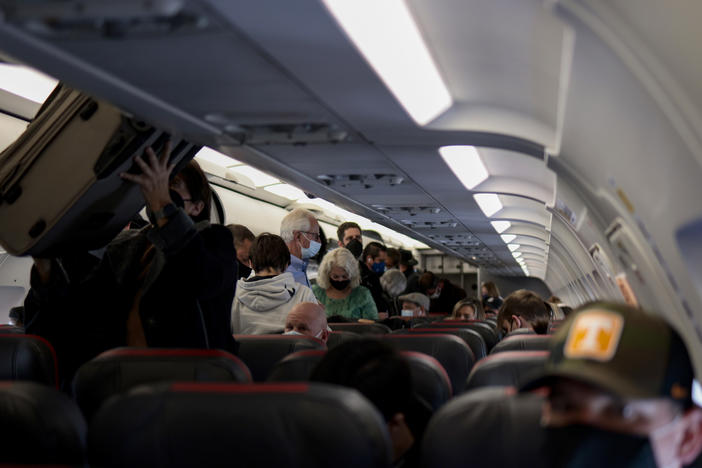Section Branding
Header Content
A theft ring that allegedly made millions from catalytic converters has been busted
Primary Content
The Justice Department has arrested 21 people suspected of belonging to a theft ring that made millions of dollars from stolen catalytic converters, the car parts that have increasingly become targets across the country.
A team of law enforcement agencies at the local, state and federal levels seized hundreds of millions of dollars in assets, such as homes, bank accounts and cash, cars and jewelry from the defendants. They are being charged with conspiracy to transport stolen catalytic converters, conspiracy to commit money laundering, and more.
The federal government is seeking $545 million total in forfeitures.
"This national network of criminals hurt victims across the country," FBI Director Christopher Wray said. "They made hundreds of millions of dollars in the process — on the backs of thousands of innocent car owners."
The defendants have been charged in two different indictments in separate courts — the Eastern District of California and the Northern District of Oklahoma.
Fifteen of the defendants are accused of buying catalytic converters from local thieves and shipping them to DG Auto in New Jersey.
Six people of DG Auto are accused of buying the stolen parts and "de-canning" them to extract the powdered metals and sell them to a metal refinery. They allegedly made about $545 million from the process, the Justice Department said.
Across the country, the part has been a hot commodity for thieves, since it contains rare metals, such as rhodium platinum and palladium, and can be valued at hundreds of dollars at scrap yards.
The National Insurance Crime Bureau has been tracking the surge in catalytic converter thefts, and says there's been about a ten-fold increase in thefts since 2018, with more than 14,000 reported being swiped in 2020.
The prices of the metals have gone up since the COVID-19 pandemic, which has affected their production in places like Russia and South Africa.
Copyright 2022 NPR. To see more, visit https://www.npr.org.
Bottom Content




